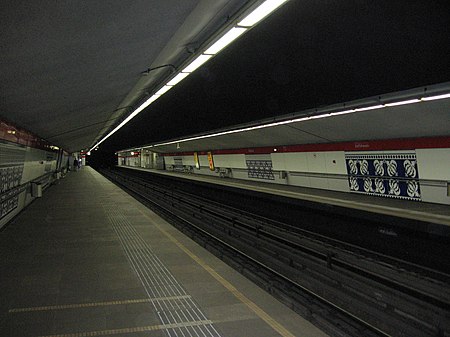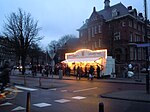Delfshaven metro station
1986 establishments in the NetherlandsEuropean rapid transit stubsNetherlands transport stubsRailway stations opened in 1986Rotterdam Metro ... and 1 more
South Holland geography stubs

Delfshaven is an underground subway station in the Dutch city of Rotterdam. It is served by lines A, B, and C of the Rotterdam Metro. The station is part of the two station long extension of the East-West Line (or Caland line) and opened on 25 April 1986. This extension connected the line's former terminus Coolhaven with the new Marconiplein station. In 2001, Delfshaven station was renovated. Since then, the walls of the station show traditional Delft blue motives.
Excerpt from the Wikipedia article Delfshaven metro station (License: CC BY-SA 3.0, Authors, Images).Delfshaven metro station
Schiedamseweg, Rotterdam Delfshaven
Geographical coordinates (GPS) Address Nearby Places Show on map
Geographical coordinates (GPS)
| Latitude | Longitude |
|---|---|
| N 51.91 ° | E 4.4455555555556 ° |
Address
Delfshaven
Schiedamseweg
3025 AA Rotterdam, Delfshaven
South Holland, Netherlands
Open on Google Maps









